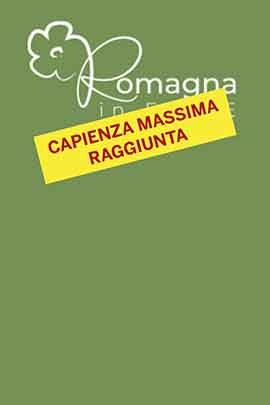This year’s Trilogy, which will run from the 17th to the 26th of November at the Alighieri Theatre, revolves around that gaze upon time and the changes which have always characterised the passage from one century to the next, especially at the dawn of the 20th century.
Composed within the last decade of the 19th century, “Cavalleria rusticana” (1890 Rome, Teatro Costanzi), “Pagliacci” (1892 Milan, Teatro Dal Verme), “Tosca” (1900 Rome, Teatro Costanzi), were all influenced by the new sensitivities spreading through Europe and embodying the desire to focus on reality, for what it is and how it reveals itself in its rawest, crudest aspects, as to create a most truthful portrayal.
Cristina Mazzavillani Muti is responsible for the inspiration and concept of the project. Leading her already traditional and well-appreciated team, she will also sign the direction, stage concept, and layout of the whole plan. On the podium of all three titles Vladimir Ovodok, one of the first students at Riccardo Muti’s Italian Opera Academy, will conduct the Orchestra Giovanile Luigi Cherubini and the Choir of the Teatro Municipale di Piacenza, led by Corrado Casati.
Teatro Alighieri November 17-26, 2017
Friday 17 November (8.30 pm)
Tuesday 21 November (8.30 pm)
Friday 24 November (8.30 pm)
Cavalleria rusticana
Opera in one act
libretto by Giovanni Targioni-Tozzetti and Guido Menasci
adapted from a play and a short story by Giovanni Verga
music by Pietro Mascagni
Saturday 18 November (8.30 pm)
Wednesday 22 November (8.30 pm)
Saturday 25 November (8.30 pm)
Pagliacci
Drama in one prologue and two acts
music and libretto by Ruggero Leoncavallo
Sunday 19 November (3.30 pm)
Thursday 23 November (8.30 pm)
Sunday 26 November (3.30 pm)
Tosca
Opera in three acts
libretto by Luigi Illica and Giuseppe Giacosa
based on the dramatic play “La Tosca” by Victorien Sardou
music by Giacomo Puccini
conductor Vladimir Ovodok
direction and concept Cristina Mazzavillani Muti
Orchestra Giovanile Luigi Cherubini
Coro del Teatro Municipale di Piacenza
choirmaster Corrado Casati
Tickets / Blocks of Tickets
July 10 block of tickets presale for season ticket holders
September 18 block of tickets and tickets presale
Cavalleria rusticana / Pagliacci
Stalls/Front seat in central box € 55, € 48*
Back seat in central box/Front seat in side box € 40, € 36*
Back seat in side box/Circle/Seat in 4th tier box € 24, € 20*
Gallery € 15
Tosca
Stalls/Front seat in central box € 70, € 64*
Back seat in central box/Front seat in side box € 52, € 48*
Back seat in side box/Circle/Seat in 4th tier box € 30, € 26*
Gallery € 18
BLOCKS OF TICKETS (3 events)
Stalls/Front seat in central box € 150, € 135*
Back seat in central box/Front seat in side box € 110, € 100*
Back seat in side box/Circle/Seat in 4th tier box € 64, € 56*
Gallery € 40
* Concession: Opera associations, CRAL, teachers, under 26, over 65, agreements
The sunset of an epoch merges into the dawn of a new era: Italian melodrama found new life at the close of the 19th century. Those were the years when everything – ideas, languages, experiments – inevitably led towards modernity, which would explode in the heart of the twentieth century and irradiate down to us. In 1890, Cavalleria Rusticana conquered theatres and audiences with its dazzling expressive immediacy, imposing “realism” in music. Two years later, Leoncavallo transformed an old real-life incident into a gloomy story of relentless passion. It was the explosion of what Verdi had called “parola scenica”, which threw new light on a century-long tradition. A light that shined fully in the tragic heroism of Puccini’s Tosca, whose dramatic strength and sophistication opened the new century.
Three operas, three different titles presented on the same stage on consecutive nights, in a real operatic “tour de force”: once again, the Festival manages to transform the Alighieri Theatre into an unremitting production machine. And the space on stage becomes a claustrophobic enclosure of distress, opening, closing, transforming, giving voice and substance to the tragedies that inform these masterpieces: death in duel, suicide, murder… going all the way to test these feelings. Visionary projections for the overwhelming passion of Cavalleria Rusticana, sharp shards of light for Pagliacci, more lights and projections for the suffocating Roman atmosphere of Tosca. Bold young voices, and the matching freshness of a conducting style forged in this very theatre, at Riccardo Muti’s Academy.
